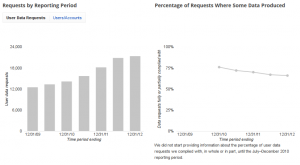Backing up Google Tasks
 You can easily backup your Google Calendar by downloading (exporting) your calendar, but how do you backup your Google Tasks data? This stumped me as there does not seem to be a way to do this in the same easy way as with your calendars.
You can easily backup your Google Calendar by downloading (exporting) your calendar, but how do you backup your Google Tasks data? This stumped me as there does not seem to be a way to do this in the same easy way as with your calendars.
Here’s my solution, I have Mozilla Thunderbird installed for testing (I usually use the Google Apps web interfaces for doing email/calendar etc.). So I figured I’d pull the data to a local source (Thunderbird) which is then backed up normally with all my other local files.
To do this I installed an additional two plug-ins for Thunderbird, Lightening – calendar plug-in and Google Tasks Sync – which does what it says on the tin. Setting up Google Task Sync is painless and once you authorised the plug-in it pulls your tasks in and viola, tasks backed up! The plug-in is GPL licensed too which is a big plus.
From the plug-in page:
Utilizing the Google Tasks API, this add-on allows you to manage your tasks directly from Thunderbird. If you are online, any changes you make are synced immediately. You will be notified in case of a sync error, so if that doesn’t happen, you can be sure your tasks are up to date. If you are offline, you still have full functionality, and the changes you make will be synced once you’re back online.
In addition, all your tasks are backed up locally once per session. The last 10 backups are stored and can be accessed with a simple viewer located in the add-on’s options.
This add-on is designed to complement Lightning (which can sync events with Google Calendar, but not tasks). However, it does not require Lightning to function. If Lightning is installed, Google Tasks Sync’s interface can attach to the Today Pane.
Is your country asking Google to handover user’s private data?

Some great analysis on the open data from Google’s transparency report. This is a great eye opener on just how aggressive some countries are in tracking people’s private conversations, including their own citizens. Of course many of these requests will be for legitimate reasons but it’s a good read to help you understand what’s going with your private information as this info is not published by the governments themselves, but rather done behind close doors. So well done Google!
The EFF writes about the analysis;
Earlier this year, Google released its semi-annual transparency report. With each release, we have gained new insight into the massive quantity of user-data requests the search giant receives from states around the world. As part of our mission to spotlight the secrecy surrounding state surveillance, EFF and SHARE Defense have released three different charts highlighting trends in increasing state demands for user data.
These charts below examine how total user data requests have increased and which countries and geographic regions are responsible for producing the greatest proportion of user-data requests. We commend Google for collecting and publishing these reports, which provide an invaluable portrait of the international thirst for private user information, and are glad that other companies are considering or moving forward with similar reports.
Here are the links to the relevant articles:
- Visualizing Google’s Transparency Report, Part 1: What Countries Are Asking Google For User Data?
- Visualizing Google’s Transparency Report, Part 2: When the State Comes Knocking, How Does Google Reply?
- Visualizing Google’s Transparency Report, Part 3: What Countries Ask For The Biggest Share of Netizen Data?
Other useful links:
